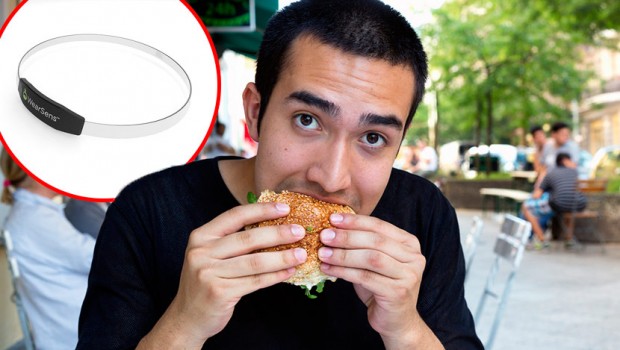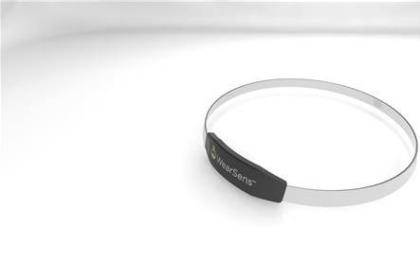Smart Necklace Tracks What You Eat

Researchers at UCLA, aided by a $148,739 federal grant, have created what is being dubbed a “diet choker.” WearSens is piece of wearable technology; a “smart” necklace that tracks vibrations in the neck to automatically detect if a user is eating, what he is eating, and whether he should stop.
 A person’s chewing, swallowing, and breathing patterns change depending on what food is being consumed. The necklace uses piezoelectric sensors that generate electricity under applied stress to record the body’s movements as food moves in, around and down the mouth and throat.
A person’s chewing, swallowing, and breathing patterns change depending on what food is being consumed. The necklace uses piezoelectric sensors that generate electricity under applied stress to record the body’s movements as food moves in, around and down the mouth and throat.
In March 2015, Majid Sarrafzadeh, Director of the Embedded and Reconfigurable Computing Lab at UCLA’s computer science department, and his team of researchers released a pilot study of the necklace’s performance. “To personalize the device, we ask a new wearer to eat a 3-inch Subway sandwich and then sip down a 12-ounce drink,” he said. In the study published in IEEE Sensors Journal, the necklace could distinguish between solids and liquids 90 percent of the time, and could precisely categorize common foods like chocolate, hamburgers, and nuts about 75 percent of the time.
WearSens logs the user’s dietary intake and forwards the data to a smartphone app. WearSens may send compliments like, “You ate at a good speed,” or polite warnings such as, “You may be eating too much.” It may also buzz if it detects undesirable eating habits (read: Thanksgiving dinners and Thirsty Thursdays).
But, can it distinguish between baked veggie chips and kettle-cooked potato chips? Can it identify culinary outliers like Arizona’s prickly pear cactus nopales or Cajun Louisiana’s crawfish boil? Questions like this have been raised by Edward Sazonov of the University of Alabama, who says, “It’s an interesting study, no doubt, but I want to see how it performs in a larger community.”
Perhaps most importantly, WearSens has the weight of pride stacked against it. A WeightWatchers journal can be maintained in privacy. The mothering WearSens may be construed as a public admission of corpulence and weak willpower.
Thankfully, researchers have other uses for the necklace. Sarrafzadeh and his partners have preliminary evidence suggesting the device can track pill schedules, help smokers quit, or remotely measure the breathing patterns of patients recovering from throat surgeries.
